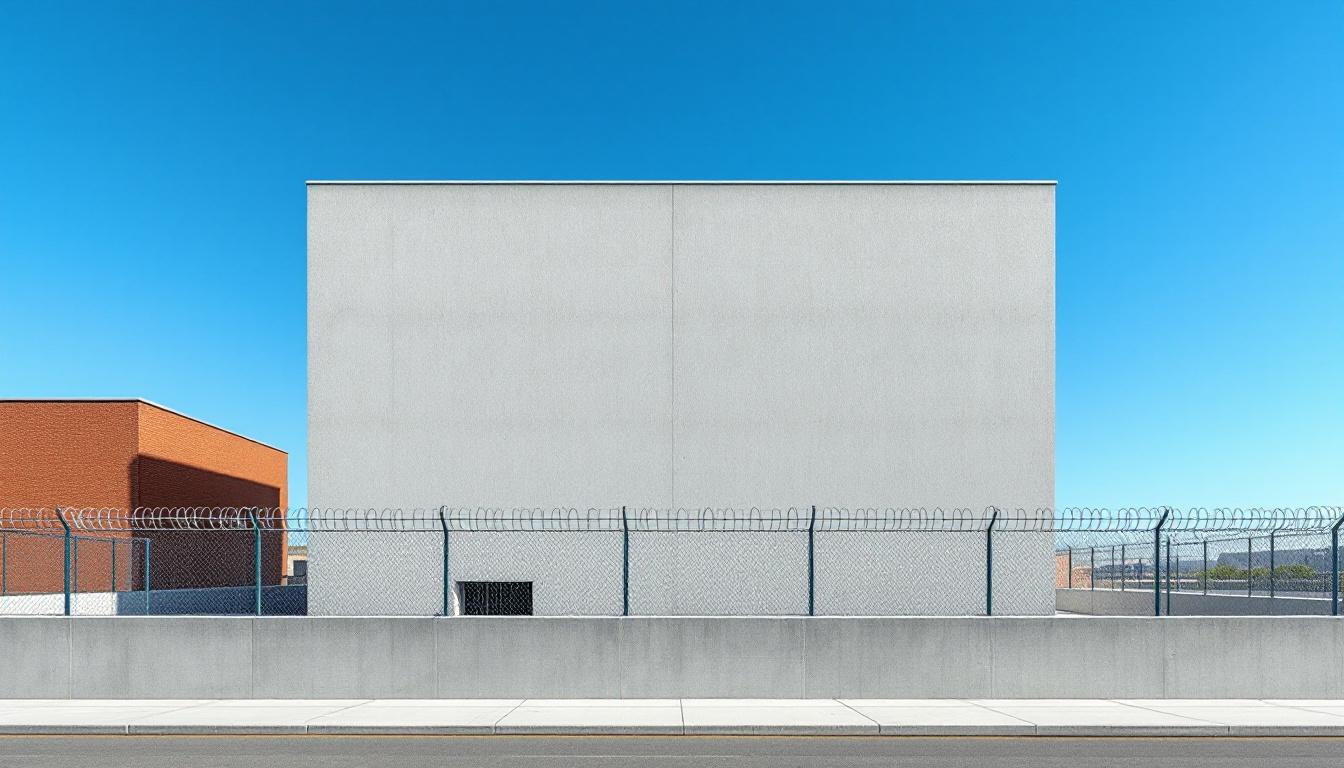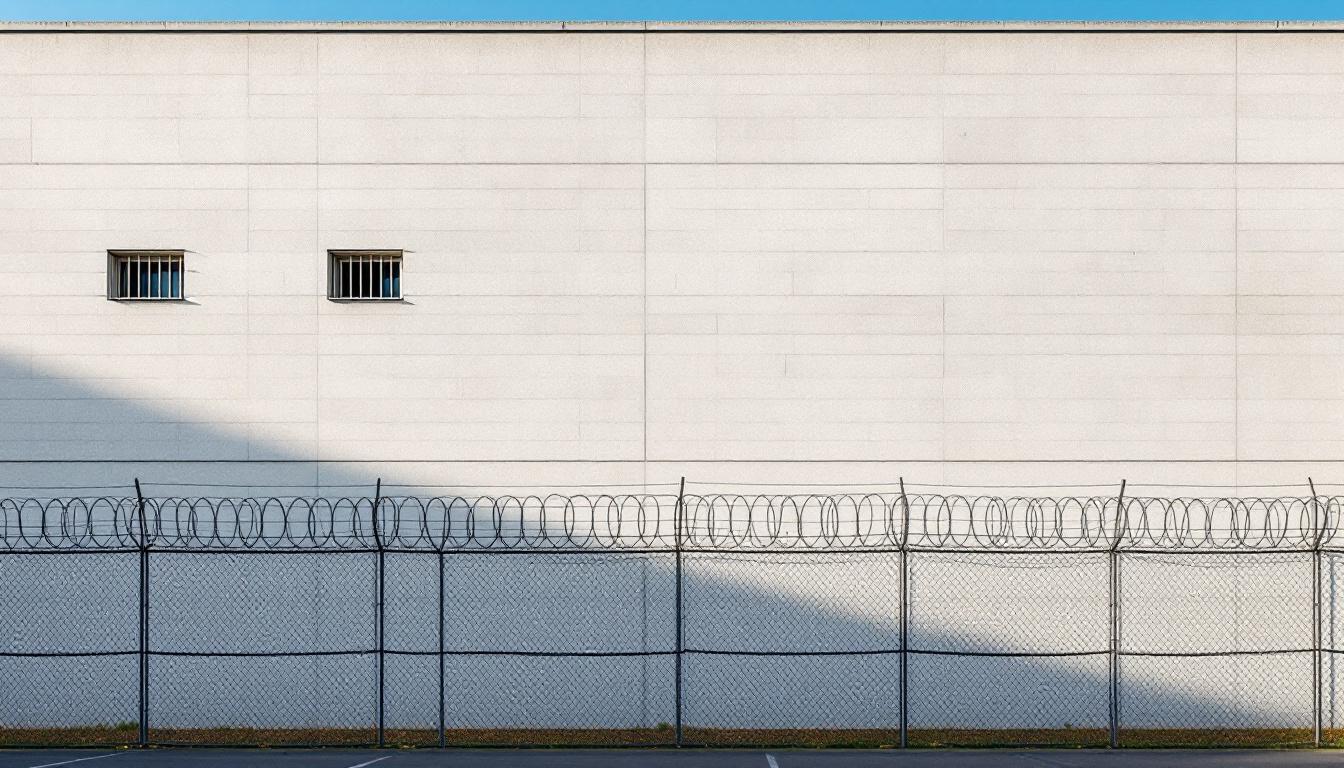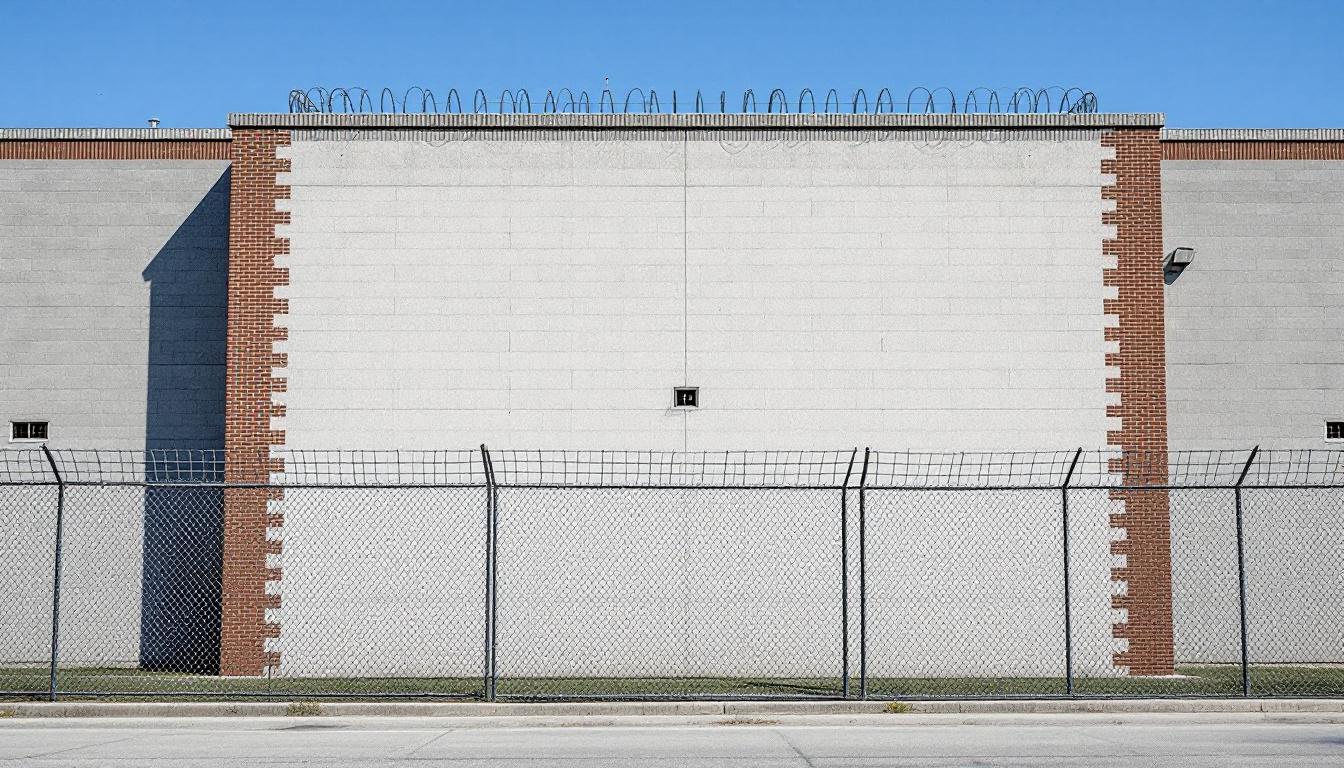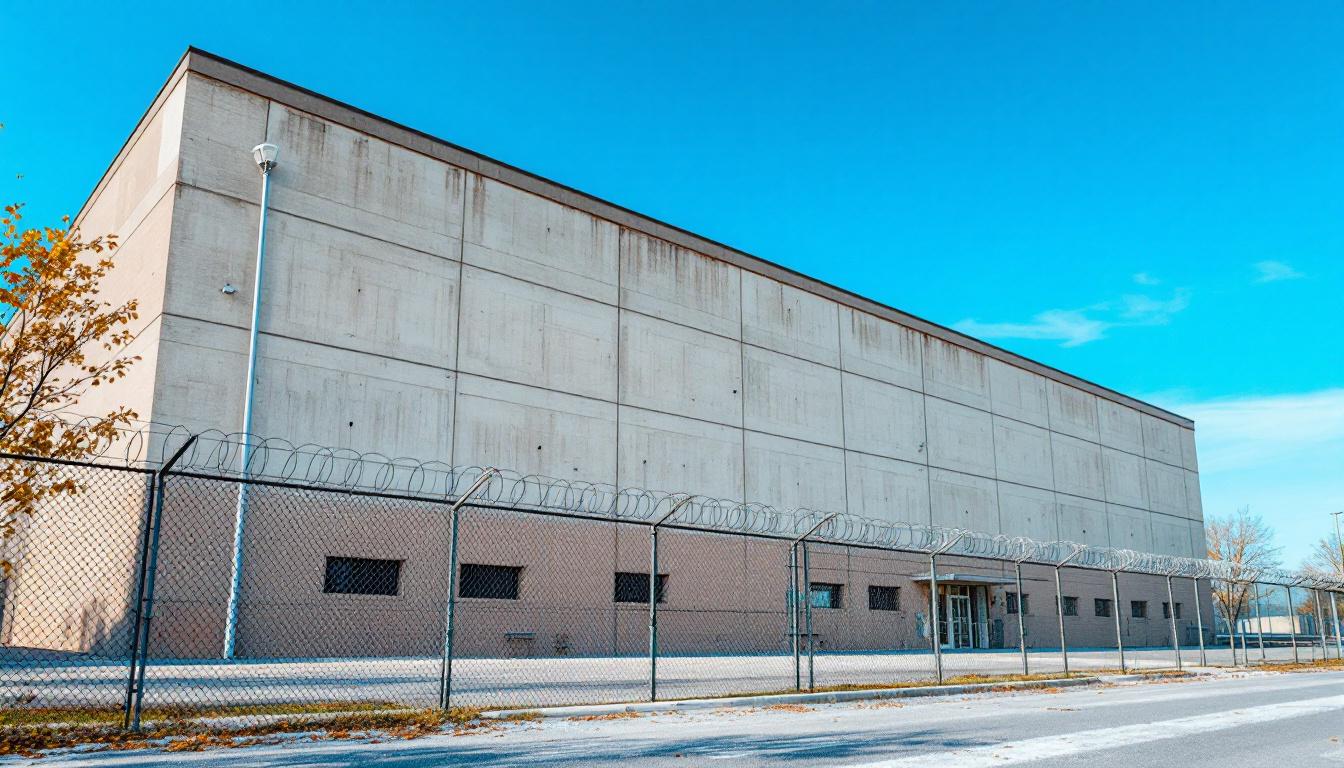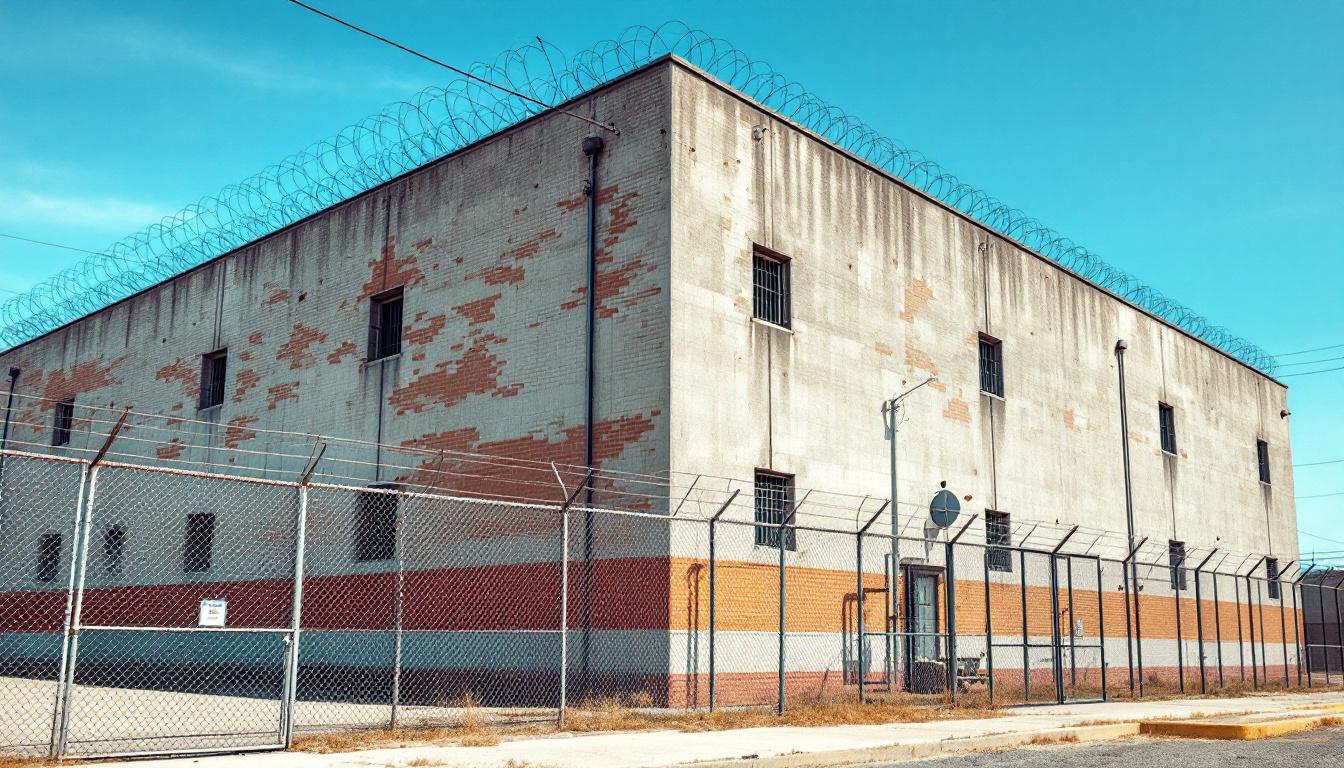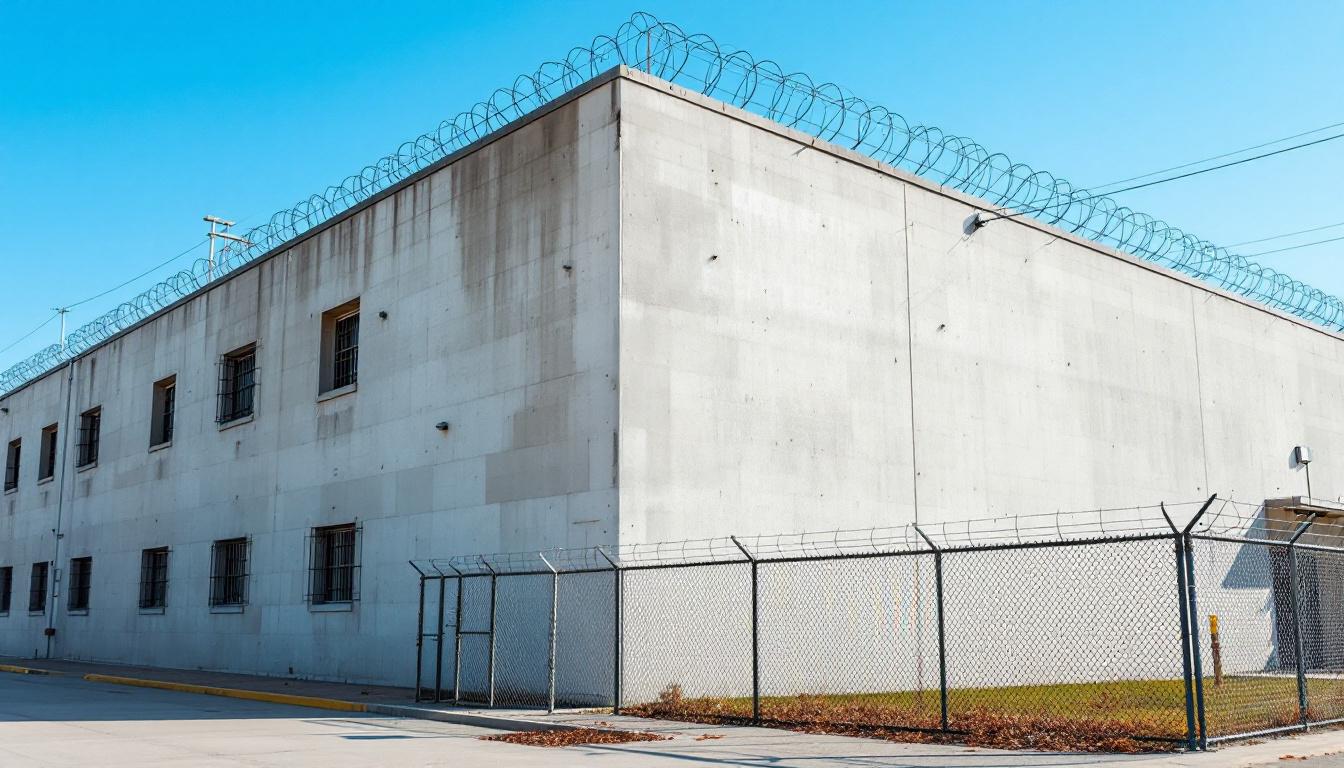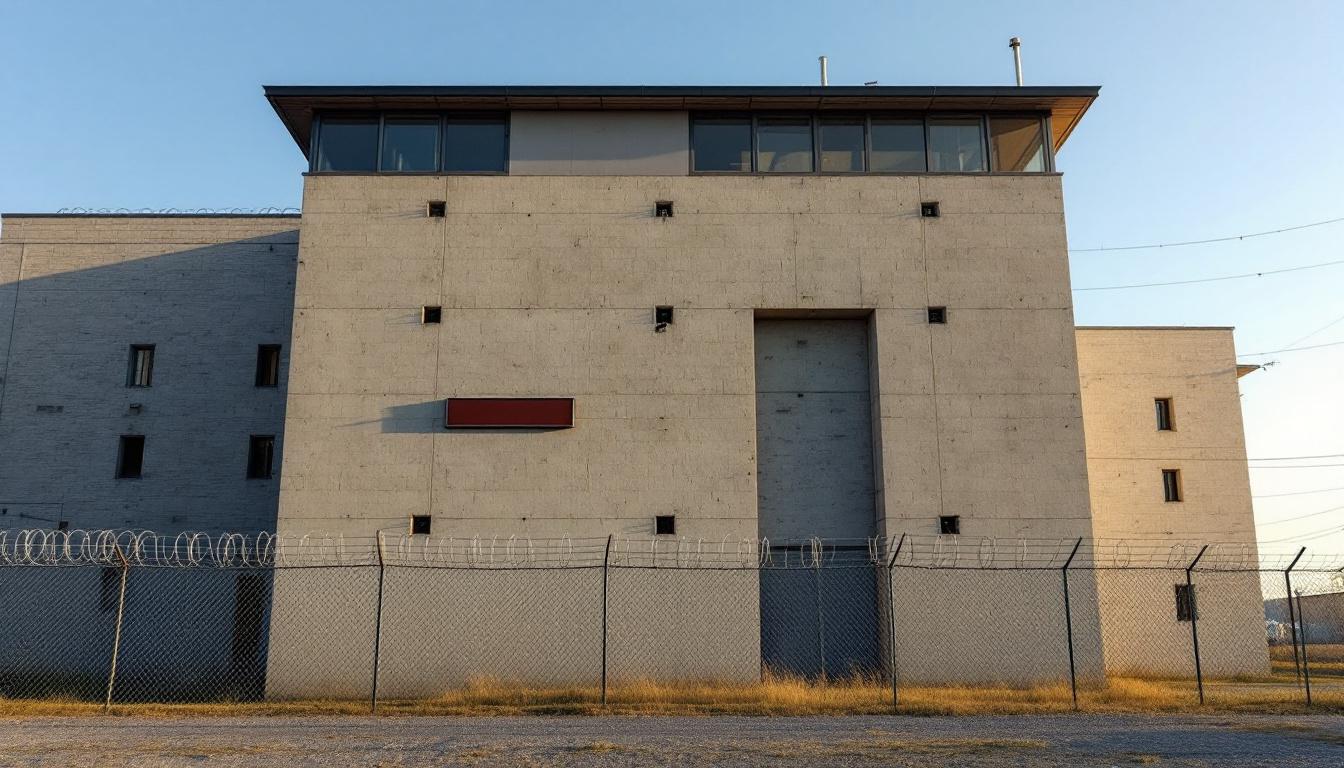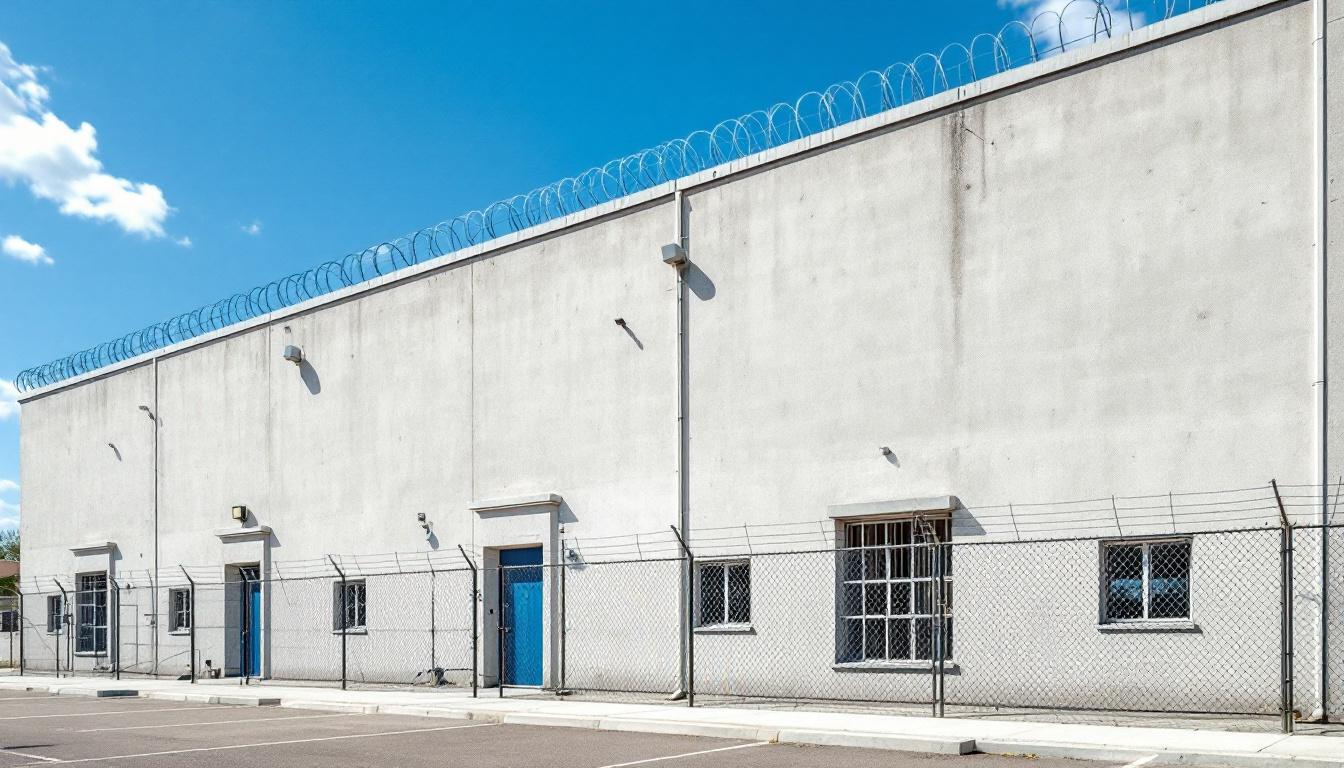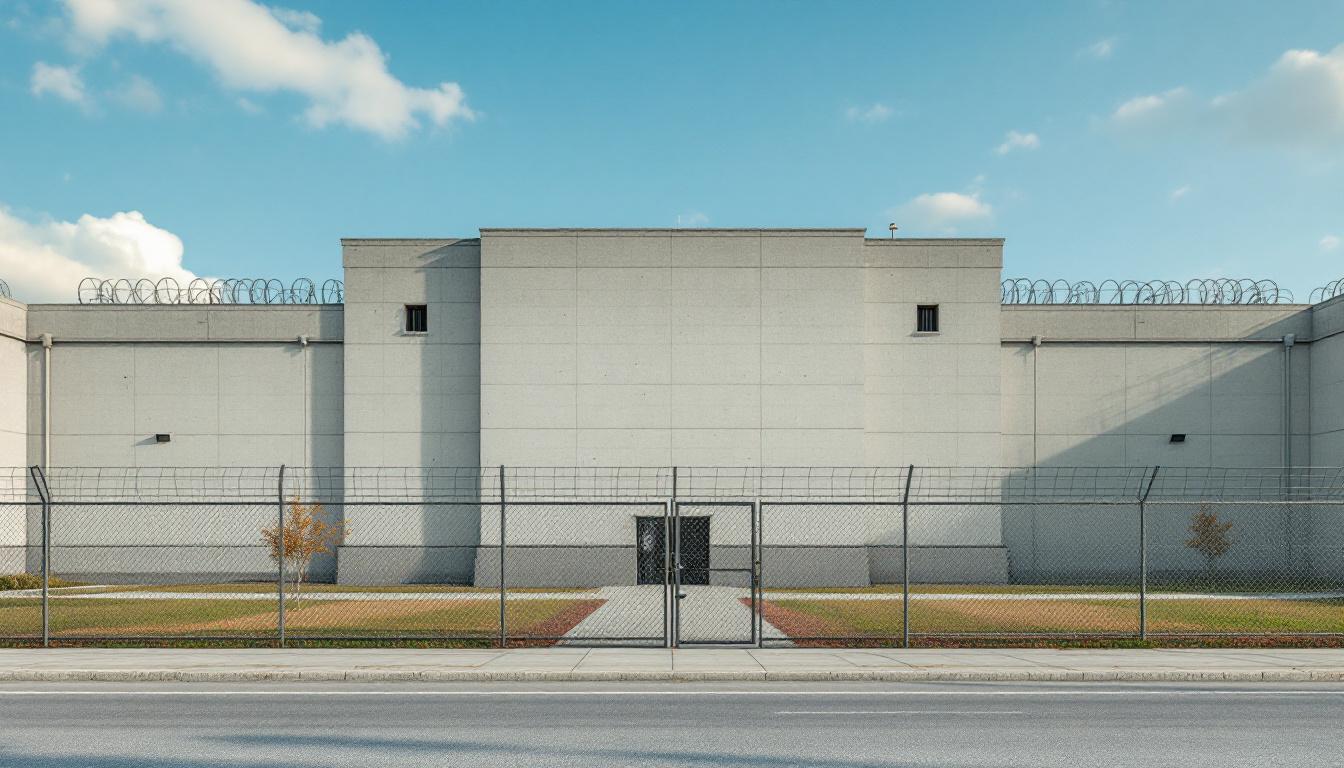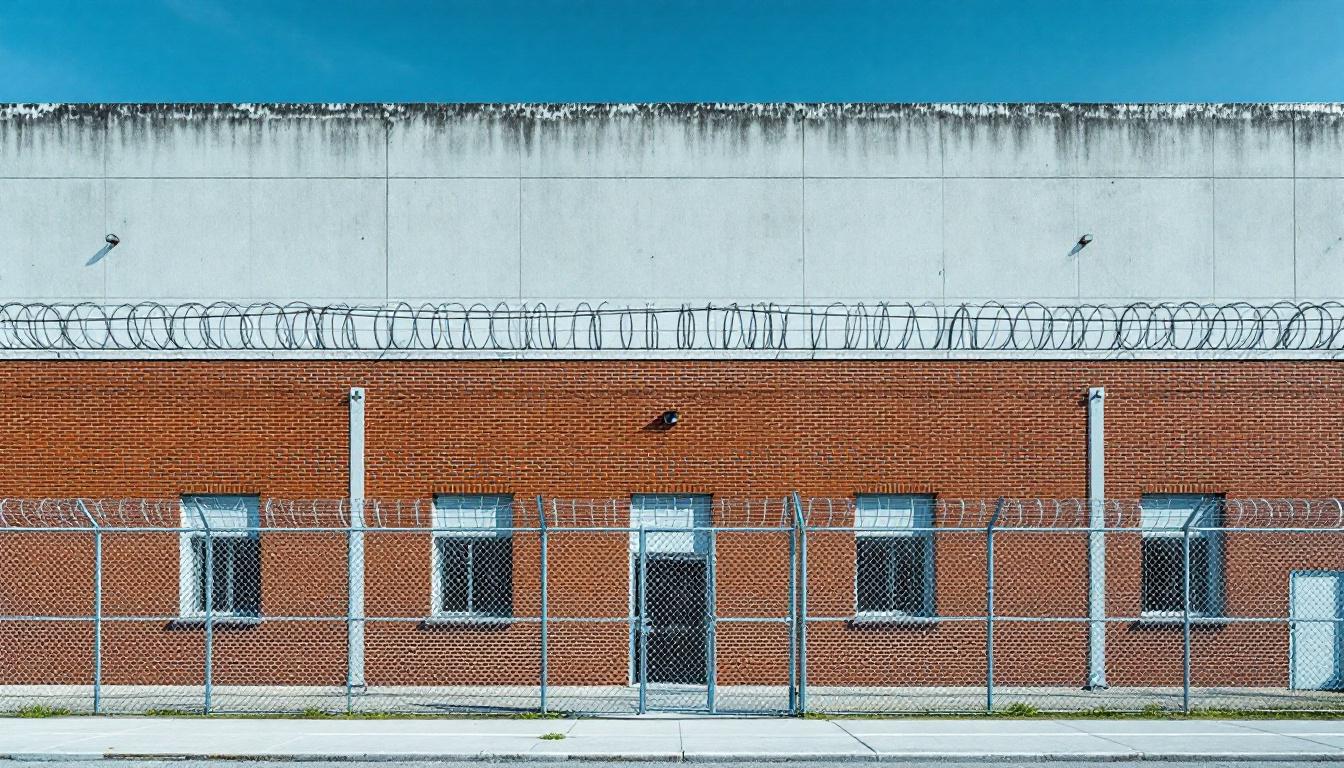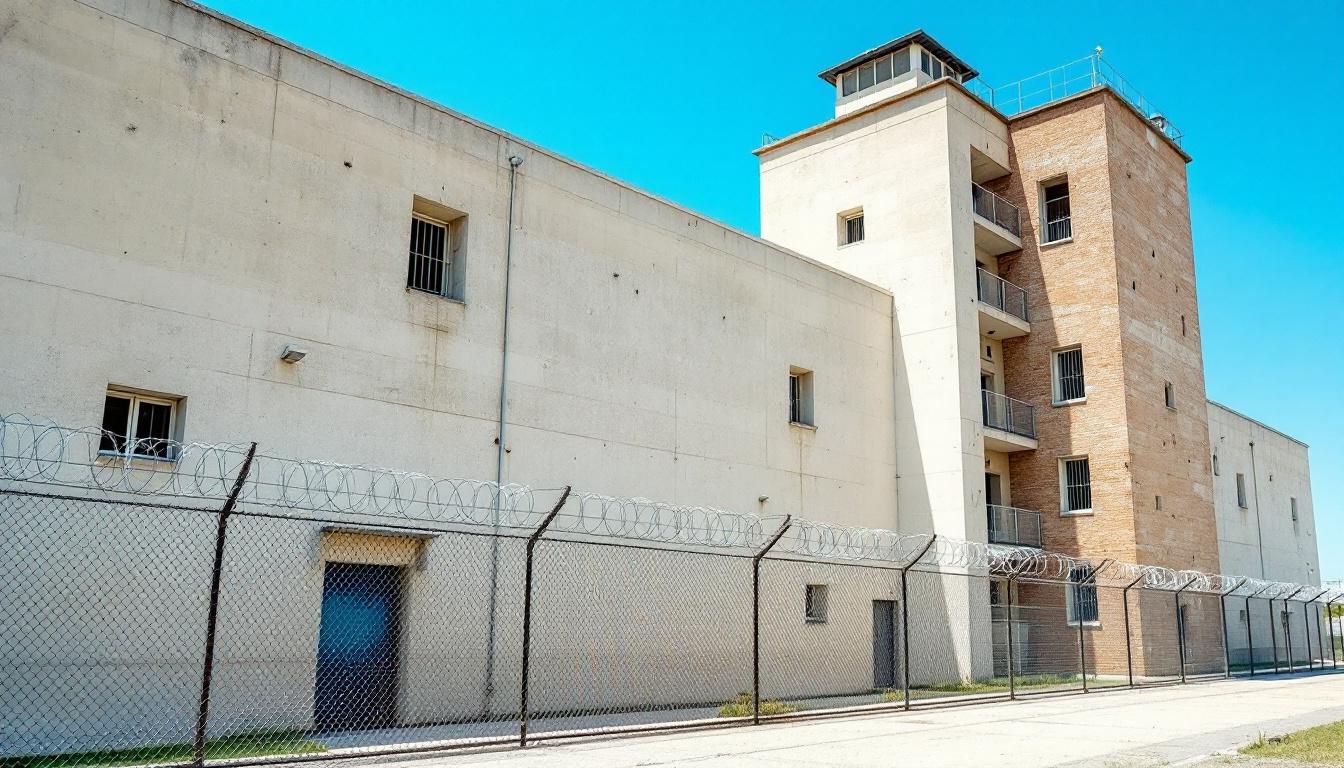
Quick Navigation
How to contact an inmate at Washington County Sheriff
This comprehensive guide will walk you through how to connect with an inmate at Washington County Sheriff. Follow the steps below to find an inmate and send letters and photos:
- Search for the inmate using our search tool below
- Create your account or log in to Penmate
- Write your message (up to 6,000 characters)
- Send instantly - inmates receive printed copies daily
Find an Inmate
Search for an inmate to start communicating today
Tip: You can search by first name, last name, or inmate ID number
To contact a person at Washington County Sheriff start by searching for the person on the official facility website. Perform a search by following these steps:
- Step 1: Enter their first name and last name into the search form and click "Search"
- Step 2: Locate their inmate record
- Step 3: Write down their Inmate ID and any housing information provided
Important! Be sure to enter the person's full name. Nicknames should not be used.
How to Send Messages to Inmates

You can use your phone or computer to send emails, letters, and photos to an inmate. Messages are sent electronically to inmate tablets or kiosks at the facility. If you would like to send a message, start by searching for an inmate at Washington County Sheriff.
Sending Photos and Postcards

A great way to send love and support to a loved one at Washington County Sheriff is to send photos and postcards. It only takes a few minutes to send photos from your phone and it makes a huge difference. You can also mail postcards with words of support and inspiration, or design your own postcard for special moments like birthdays and holidays.
Important! Be sure not to send any explicit photos or they may not be approved by the facility. You can also use a photo printing app like Penmate to make sure your photos are printed at the correct size (4x6 or 3x5) and are mailed according to the rules and regulations of Washington County Sheriff.
Frequently asked questions about Washington County Sheriff
-
How long does it take to deliver a message?
If you're sending an email message your letter is usually delivered within 24-48 hours. For messages sent via mail you should expect delivery within 3-7 days. All messages will need be approved by Washington County Sheriff.
-
How much does it cost to send a message to Washington County Sheriff?
You can send a message free using your phone or mail a message via USPS for the price of a $0.60 stamp and envelope. You can also purchase credits or e-stamps from services starting at $1.99.
-
What services can I use to contact an inmate at Washington County Sheriff?
Penmate
You can use Penmate to send letters and photos to an inmate from your phone. It's an easy way to stay in touch during your loved one's incarceration. Use the inmate locator to find an inmate's location and contact information, then you can send messages within a few minutes.
Securus messaging
Securus may be another option for communicating with an inmate at Washington County Sheriff. You can create a friends and family account and purchase credits to send messages. All messages will be reviewed and must be approved by the facility.
JPay
Some county jails and state prisons may support sending messages with JPay. You must register an account with the system, find your loved one, and purchase stamps to send messages. For some locations you can also attach photos.
Smart Jail Mail
You may also check if Smart Jail Mail is available at Washington County Sheriff. Smart Jail Mail is operated by Smart Communications and has contracted with some state and county jails. After purchasing credits, your messages and photos are sent to the facility, printed out, and then handed out to your loved one.
-
What is the mailing address of Washington County Sheriff?
Mailing address:
Washington County Sheriff
500 Western Maryland Pkwy
Hagerstown, MD 21740
Phone: (240) 313-2100 -
What are the visiting hours at Washington County Sheriff?
Visiting hours at Washington County Sheriff vary by housing unit and security level. Generally, visits are scheduled on weekends and holidays, with some facilities offering weekday visits. Contact the facility directly at (240) 313-2100 or check their website for the current visiting schedule. Visits typically last 30-60 minutes and must be scheduled in advance.
-
What items are prohibited when sending mail to Washington County Sheriff?
Prohibited items typically include: cash, personal checks, stamps, stickers, glitter, glue, tape, staples, paperclips, polaroid photos, musical or blank greeting cards, hardcover books, magazines with staples, and any items containing metal or electronics. Only send letters on plain white paper with blue or black ink. Photos must be printed on regular photo paper (no Polaroids). Always check with Washington County Sheriff for their specific mail policies.
-
How do I send money to an inmate at Washington County Sheriff?
You can send money to an inmate at Washington County Sheriff through several methods: 1) Online using JPay, Access Corrections, or the facility's approved vendor, 2) Money orders mailed directly to the facility with the inmate's name and ID number, 3) Kiosks located in the facility lobby, or 4) Over the phone using a credit or debit card. Fees vary by method, typically ranging from $2.95 to $11.95 per transaction.
-
Can I schedule a video visit with an inmate at Washington County Sheriff?
Many facilities now offer video visitation as an alternative to in-person visits. At Washington County Sheriff, video visits may be available through services like Penmate, Securus Video Connect, GTL, or ICSolutions. Video visits typically cost $10-20 for 20-30 minutes and must be scheduled in advance. You'll need a computer or smartphone with a camera and reliable internet connection. Contact the facility for their specific video visitation policies and approved vendors.
-
What identification do I need to visit an inmate at Washington County Sheriff?
All visitors must present valid government-issued photo identification such as a driver's license, state ID, passport, or military ID. Minors must be accompanied by a parent or legal guardian who can provide the minor's birth certificate. Some facilities require visitors to be on the inmate's approved visitation list, which may require a background check. Contact Washington County Sheriff for specific ID requirements and visitor approval procedures.
-
How can I find out an inmate's release date?
To find an inmate's release date at Washington County Sheriff, you can: 1) Use the online inmate search tool if available, 2) Call the facility's records department, 3) Contact the inmate's case manager or counselor, or 4) Have the inmate provide this information during a call or visit. For privacy reasons, some facilities only release this information to immediate family members.
Facility Overview
Contact Information
Washington County Sheriff500 Western Maryland Pkwy
Hagerstown, MD 21740
Phone: (240) 313-2100
Official Website

About Washington County Sheriff
Serving as a cornerstone of public safety within Washington County, this detention facility operates with a fundamental commitment to maintaining secure custody while fostering pathways toward positive behavioral change. The Washington County Detention Center strategically positions itself in Hagerstown, MD, where it functions as an integral component of the region’s criminal justice infrastructure, supporting both law enforcement operations and community safety initiatives throughout the area.
Geographic positioning in Hagerstown provides the facility with meaningful connections to local service networks and community resources that typically enhance programming opportunities for those incarcerated. The MD correctional facility generally maintains collaborative relationships with area organizations, which may include educational institutions, healthcare providers, and social service agencies that contribute to comprehensive support systems. These partnerships often facilitate access to substance abuse counseling, vocational training opportunities, and mental health services that address underlying factors contributing to criminal behavior. The detention center’s approach to rehabilitation typically emphasizes structured daily routines, educational advancement opportunities, and preparation for successful community reintegration.
Within Maryland’s broader correctional landscape, this Hagerstown facility generally operates under established protocols that prioritize both security measures and constructive programming. Those incarcerated services commonly include basic healthcare, library access, and various forms of counseling support, while the facility maintains its primary responsibility of ensuring public safety through secure detention. The center’s operational framework typically reflects contemporary correctional practices that balance accountability with opportunities for personal growth and skill development during the period of incarceration.
Programs & Services
Through carefully structured educational pathways and skill-building initiatives, those incarcerated at Washington County Detention Center encounter meaningful opportunities to reshape their futures and develop essential competencies for successful community reintegration. The facility’s comprehensive approach to personal development emphasizes both immediate growth and long-term preparation, recognizing that meaningful change occurs through sustained engagement with purposeful activities. This philosophy of transformation guides the center’s diverse array of offerings, which are designed to address the multifaceted needs of participants while maintaining the security and structure essential to effective correctional operations.
Educational offerings typically encompass fundamental literacy development, GED preparation, and various academic enhancement opportunities that allow participants to advance their formal learning. Furthermore, vocational training initiatives may furnish hands-on experience in construction trades, providing those incarcerated with marketable skills and industry-relevant knowledge. These practical learning experiences often include comprehensive instruction in safety protocols, tool usage, and project management principles, creating pathways to sustainable employment upon release while reinforcing the importance of structured, goal-oriented work environments.
The center’s support services framework often includes therapeutic interventions designed to address underlying behavioral patterns and promote emotional wellness among participants. Furthermore, specialized offerings such as animal care programs may provide comprehensive opportunities for developing responsibility, empathy, and nurturing skills through structured interaction with animals. Music programs typically complement these therapeutic approaches, offering creative outlets that can enhance emotional expression and build confidence while fostering a sense of community among participants. These varied support mechanisms work collectively to create an environment where personal growth and positive behavioral change can flourish within the facility’s secure setting.
Daily Life & Visitation
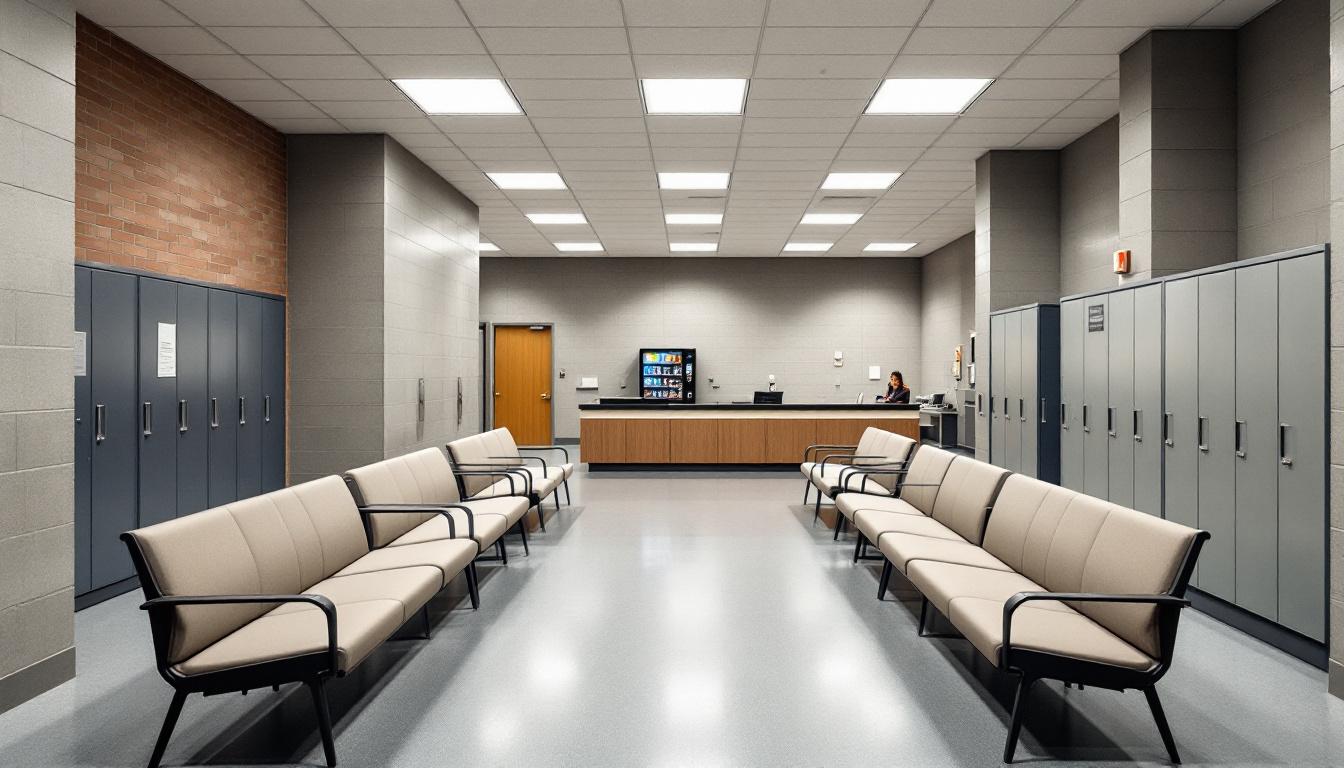
Strong family bonds and community connections remain central to the experience of those incarcerated at Washington County Detention Center, where maintaining relationships with loved ones often provides crucial emotional support during a challenging time. At present, the facility actively structures daily routines around scheduled activities that begin with early morning wake-up calls, followed by meals served in designated dining areas where those incarcerated may interact with others from their housing units. The day typically includes periods for personal hygiene, recreation, and various programming opportunities, with evening hours generally reserved for additional recreational time before lights-out procedures are implemented.
Furthermore, living accommodations within the facility typically consist of shared housing units where those incarcerated are assigned based on various classification factors, creating small communities within the larger institutional setting. These housing arrangements often furnish opportunities for social interaction and mutual support among residents, although movement between different areas of the facility generally requires supervision and adherence to established security protocols. Personal property allowances usually include basic hygiene items and limited personal effects, while commissary services may provide access to additional items that can enhance daily comfort and facilitate letter-writing to maintain family connections.
Although the institutional environment presents inherent limitations, recreational activities and structured programming schedules typically offer meaningful ways for those incarcerated to spend their time productively while building relationships with fellow residents. Visitation policies generally allow for regular contact with approved family members and friends, while telephone access and mail services provide additional avenues for maintaining outside connections that prove essential for emotional well-being. Work assignments within the facility may include food service, maintenance duties, or administrative tasks that not dedicated provide structure but also create opportunities for those incarcerated to contribute to their community while developing interpersonal skills and work experience.
Ready to Connect?
Start communicating with your loved one today
Search for an Inmate
